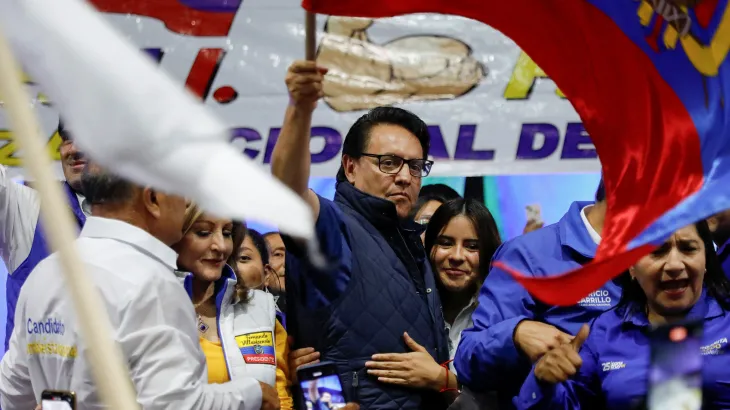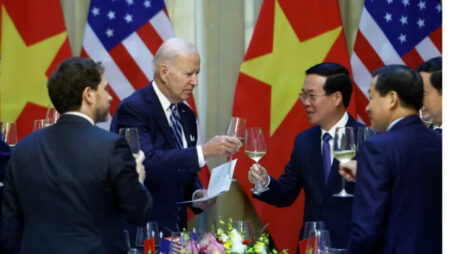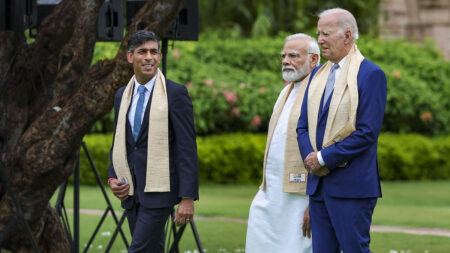The recent assassination of Fernando Villavicencio, a prominent Ecuadorean presidential candidate, has sent shockwaves through the nation. As authorities grapple with the aftermath of the tragic event, the involvement of the U.S. Federal Bureau of Investigation (FBI) in the investigation has highlighted the severity of the situation. With violent crime on the rise due to transnational criminal gangs, Ecuador is facing a critical moment that could redefine its future.
Table of Contents
Fernando Villavicencio: A Fearless Voice Against Corruption and Crime
Fernando Villavicencio, a 59-year-old ex-lawmaker and investigative journalist, was not a stranger to controversy. His unyielding commitment to uncovering corruption and organized crime made him a prominent figure in Ecuador’s political landscape. Despite receiving multiple death threats, Villavicencio remained steadfast in his mission, refusing to back down in the face of danger. His assassination, which occurred during the final days of the presidential campaign, marked a tragic end to a life dedicated to truth and justice.
Transnational Criminal Gangs: A Growing Threat in Ecuador
Ecuador‘s struggle with violent crime, particularly driven by transnational criminal gangs, has escalated in recent years. The rise in gang-related incidents has raised concerns about the safety and security of its citizens. Villavicencio’s killing serves as a grim reminder of the challenges the nation faces, as criminal elements continue to infiltrate various aspects of society. The murder has highlighted the urgent need for comprehensive measures to combat these criminal networks and restore peace to the country.

International Cooperation: FBI’s Role in the Investigation
In a significant step towards uncovering the truth behind Villavicencio’s assassination, the U.S. FBI has joined forces with Ecuadorean law enforcement agencies. This collaboration underscores the gravity of the situation and the importance of bringing the perpetrators to justice. The FBI’s involvement reflects the international community’s commitment to supporting Ecuador’s efforts to tackle crime and corruption at its roots.
The Path to Justice: Unraveling the Investigation
As investigators delve into the circumstances surrounding the assassination, the focus shifts to identifying those responsible. The presence of six Colombian nationals charged with ties to criminal groups has raised questions about potential motives and external influences. Authorities must navigate a complex web of connections to determine the full extent of the conspiracy behind Villavicencio’s murder. The collaboration between Ecuadorean officials and the FBI provides a glimmer of hope in the pursuit of justice.
The Aftermath and Political Reshuffling
Villavicencio’s untimely death has left a void in Ecuador’s political landscape. In the aftermath of the assassination, the Build party has made significant changes to its leadership lineup. Christian Zurita, a fellow journalist who collaborated with Villavicencio, has stepped up as the party’s top candidate. This unexpected transition underscores the resilience of those determined to continue Villavicencio’s fight against corruption. However, these changes also serve as a stark reminder of the challenges faced by those who dare to challenge the status quo.
A Legacy of Courage and Determination
Fernando Villavicencio’s legacy is one of unwavering courage and determination. His commitment to exposing corruption and confronting criminal networks has left an indelible mark on Ecuador’s history. As the nation mourns his loss, it must also rally behind his ideals and aspirations. Ecuadorians from all walks of life must come together to reject the culture of fear perpetuated by criminal elements and stand up for a brighter, safer future.
Beyond the Headlines: Addressing the Root Causes
While the investigation into Villavicencio’s assassination is crucial, it also serves as an opportunity to address the root causes of Ecuador’s crime problem. The rise of transnational criminal gangs is often fueled by social and economic disparities, lack of opportunities, and weak governance. To ensure lasting change, the nation must focus on comprehensive solutions that encompass education, job creation, and effective law enforcement. Only by tackling these underlying issues can Ecuador hope to create a society that is resilient to criminal influence.
Moving Forward: Unity and Resilience
The tragic assassination of Fernando Villavicencio has thrust Ecuador into a pivotal moment in its history. The collaboration between Ecuadorean authorities and the FBI reflects a determination to bring justice to his memory. As the investigation unfolds, Ecuador must also take this opportunity to transform its future. By addressing the factors that contribute to crime and corruption, the nation can pave the way for a more secure and prosperous society. Villavicencio’s legacy serves as a reminder that even in the face of adversity, the fight for truth and justice must never waver.













